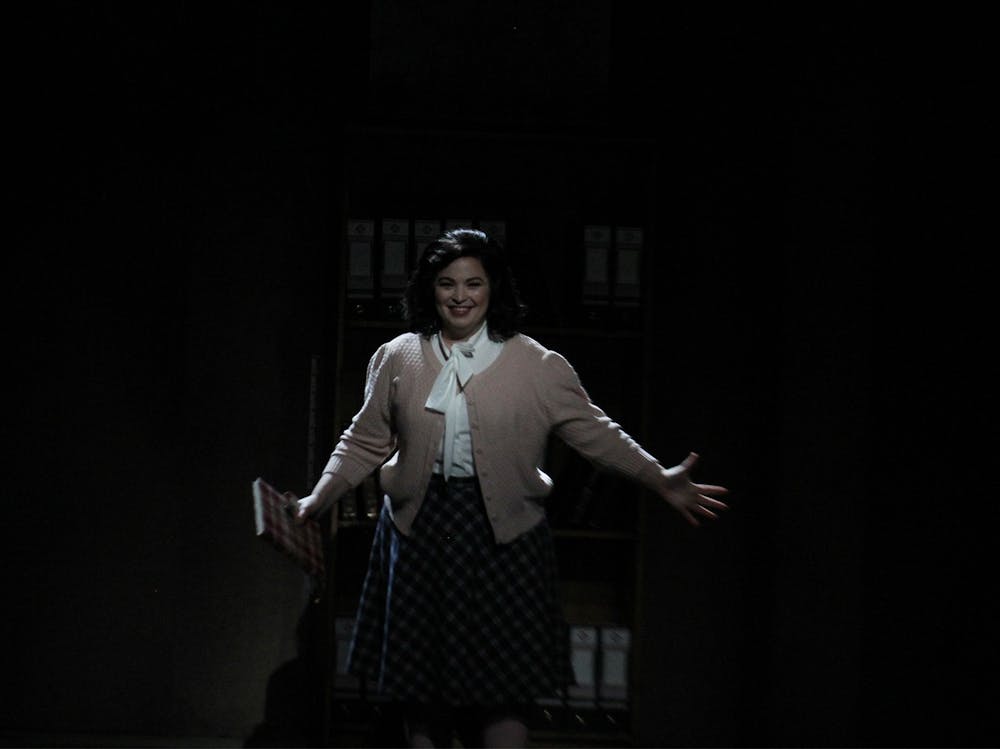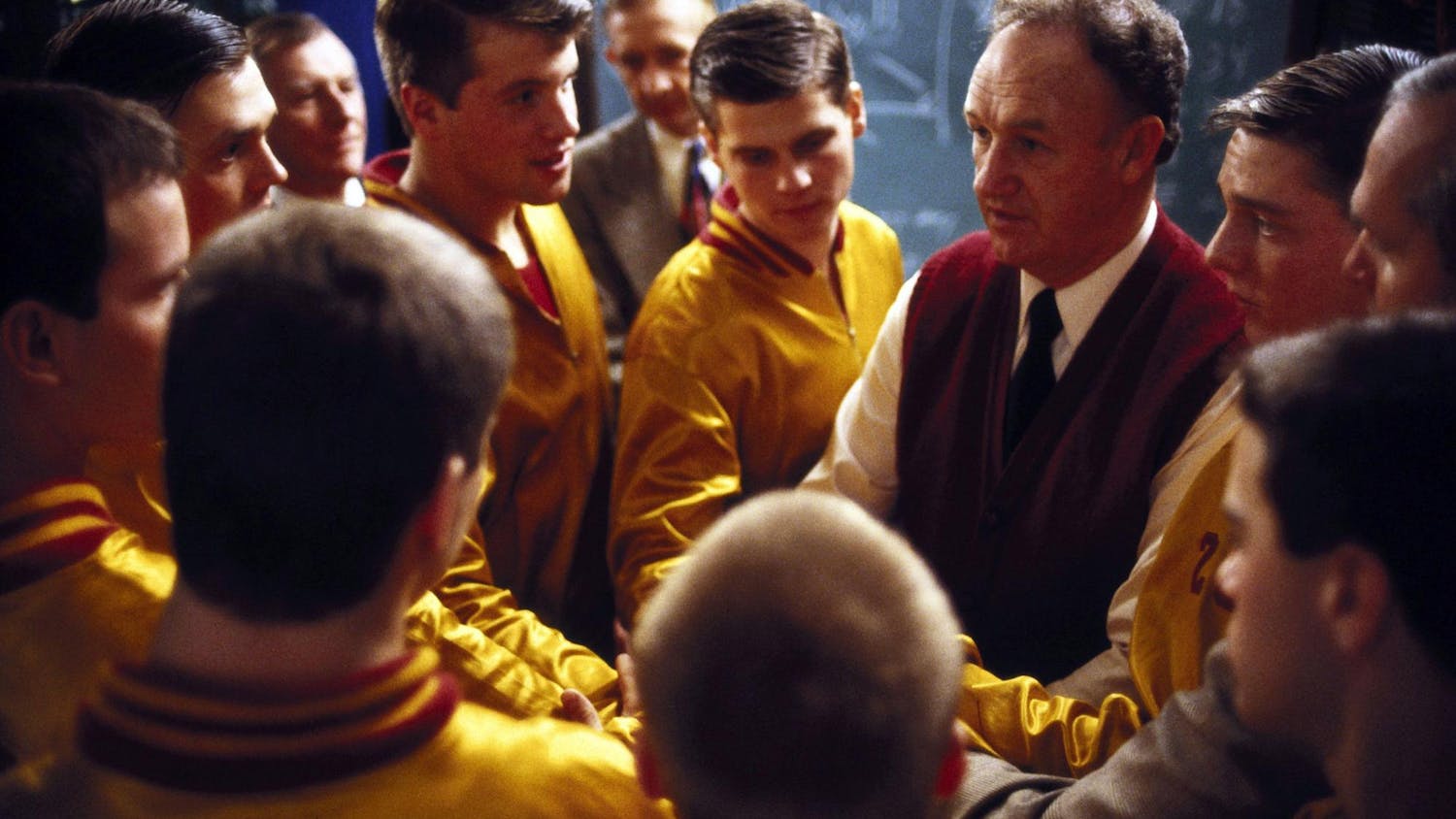The curtain rises on a dark stage, then the sounds of the chorus crying out reverberate through the Musical Arts Center as they slowly emerge from the darkness of a train car set in the background.
“Anne Frank” is directed by the Emmy Award-nominated director Crystal Manich, with a stunning score by Pulitzer Prize winner Shulamit Rin and a libretto by Charles Kondek.
Jacobs School of Music will present “Anne Frank” at 7:30 p.m. March 3-4 and 9-10 at the Musical Arts Center.
“Anne Frank” will be the first main stage production based on “The Diary of Anne Frank,” a chronicling of Anne’s time in hiding. The opera will be presented with two different casts with IU doctoral student Anne Slovin and IU performance diploma program enrollee Kate Johnson bringing the role of Anne to life.
When examining the score and libretto to prepare for the role of Anne Frank, Johnson found herself repeatedly returning to the production’s strong sense of humanity.
Related: [COLUMN: Student film ‘Dancing Man’ transcends homage to become its own film]
“Alongside conveying the heartbreaking tragedy and atrocity of the Holocaust, this opera includes moments of joy, silliness, humor and coming-of-age themes,” Johnson said. “It connects us to the full humanity of the people whom my cast-mates and I have the honor and responsibility of portraying.”
While the story of Anne Frank has been adapted in numerous different mediums, Johnson saw an operatic adaptation as a powerful decision that showed the importance of music and community unifying to tell the story.
“The music carries so much of the emotion; I think it’s an important aspect of storytelling and a big part of it,” Johnson said. “Opera is also this huge collaboration: the stage medium, the musical collaboration, and the dance collaboration — there’s so much coming together that its beautiful.”
The production is a world premiere, opening for the first time ever on March 3. Despite how new the opera is, Johnson said she saw it less as a challenge and more as a chance to embrace the artistic medium.
“It’s been a really incredibly opportunity to approach something fresh,” Johnson said. “To just come into it with a wholehearted approach and to serve this real-life story to the very best of my ability, and to just trust myself as a musician and artist.”
The opera shows not just the Frank family but the others living with them — the Van Daan family and Dr. Drussel. Played by IU doctoral student Sylvester Makobi in one cast, Makobi said he found himself especially drawn to the opera for the unique chance to work with a living composer — something not at all common.
“Many composers aren’t there to ask questions like ‘In this part, what were you thinking?’” Makobi said. “They also can’t edit music to fit a singer, but now the composer being around is just a great nonstop learning experience.”
The learning experience didn’t stop there for Makobi, as he read what he could find on Anne Frank and the people in the annex, additionally speaking to people with ties to the Holocaust. Makobi said their stories informed his understanding of the devastating impact of the Holocaust.
“It’s so humbling being offered the opportunity to do this premiere, it’s so special,” Makobi said. “Learning through the stories of my castmates and talking to (conductor) Maestro Fagen whose family was directly affected, it’s really a special moment for us to be able to mount this work.”
Related: [Jacobs School of Music Ballet Theater elevates ‘Anne Frank’ opera through dance]
IU master’s student, Catarine Hancock, plays the role of Margot Frank — Anne’s sister — in one cast. She saw the premiere as part of a resurgence in the opera world to remain important by becoming more culturally relevant and speaking to a new generation of artists.
“We’ve had a surge of newer operas that tell stories that relate more intimately to people of today,” Hancock said. “I think that’s a direction that opera needs to go in if it wants to survive.”
With antisemitism at a concerningly high rate, “Anne Frank” is still relevant today — something Hancock recognized and believed gave more weight and merit to the opera. Hancock also hoped others would agree.
“I want people to take this story and maybe look a little bit inward,” Hancock said. “I want them to really think about the parallels we can find in our society today that led to the Franks and Van Daans to hide in the annex, ‘Where do we see the warning signs?’”




